Maybe my answer is unrelated to an recursion, and this question at all unlike the answer by @Sylwester, but it's still useful to show an another way to solve this problem.
Assuming that pascal triangle has this properties:
- First and last item in every line of pascal triangle is '1'
- Second and penultimate is number of line
Any other elements can be solved by formula:

Than means, that You can solve any elements of pascal triangle by linear algorithm with time complexity O(n^3). It may be not much cool than recursive version with O(n^2) and recursion, but it doesn't blow stack and it use combinatorics, which is in my opinion even better, because it's simpler and safer version.
So, here we go:
(defn naive-factorial[n]
(reduce *' (range 1 (inc n))))
(defn combinatoric-formula[line pos]
(if (<= pos line)
(/
(naive-factorial line)
(*' (naive-factorial pos)
(naive-factorial (- line pos))))))
As You can see there is used naive-factorial function, which takes n multiplication, which lead us to O(n^3). It's the same as your function, but without any recursion.
For pascal triangle there is also much than one way to solve them in different ways. Some of them are very tricky, take a look, if you have much time: rosettacode.org
Also in you version your use int math in clojure by +, please use in +' function in any cases which can lead to large numbers(assuming that that means that the addition will be lead to converting your values to biginteger type, which allows very large numbers).
Also I translated the scheme version introduced by @Sylwester to a clojure:
(defn pascal [row col]
(let [aux
(fn aux [tr tc prev acc]
(cond (> tr row) (throw (.Exception "invalid input"))
(and (= col tc) (= row tr)) (+' (first prev) (second prev)); the next number is the answer
(= tc tr) (recur (+' tr 1) 1 (cons 1 acc) '(1)) ; new row
:else (recur tr ; new column
(+' tc 1)
(next prev)
(cons (+' (first prev) (second prev)) acc))))]
(if (or (zero? col) (= col row))
1
(aux 2 1 '(1 1) '(1)))))
It's maybe can be improved, but shows the idea. It's calculated the entire triangle from third line to previous one of provided input and then gets the answer. Pretty awesome and pure magic of function approach.
The performance of this version is much more worse, than the linear version.
So it gets:
(time (combinatoric-formula 1000 100))
"Elapsed time: 2.73794 msecs" for linear version
(time (pascal 1000 100))
"Elapsed time: 135.426888 msecs" for tail recursion version
But it's still much cleaner and cooler ;)
